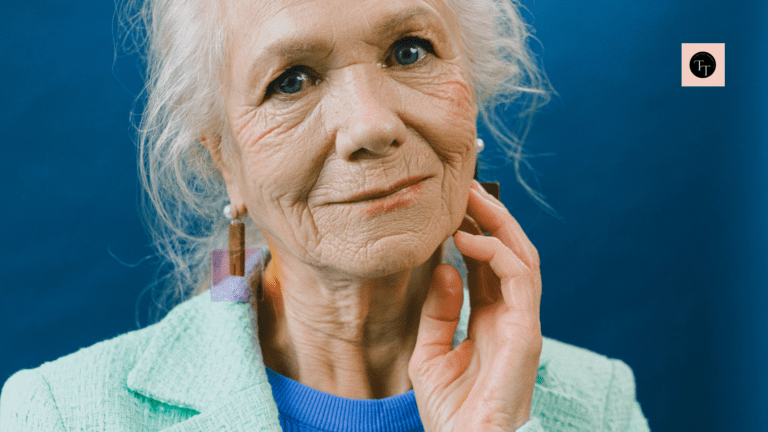Developing Self-Awareness: A Worthwhile Journey
Developing self-awareness is the foundation of personal growth. Self-awareness helps you understand your thoughts, emotions, and actions. When you know yourself better, you are at peace with yourself and will find tranquility in life.
Not only that, self-awareness helps you make better decisions and build stronger relationships. Self-awareness leads to a more fulfilling life.
While developing self-awareness is great for anyone and at any age, I think it is even more relevant to senior single women who have a difficult life ahead. It helps them navigate the challenges of aging and living alone.
If you fall in this demographic, trust me, developing self-awareness will give you joy, purpose, peace, and tranquility. Practicing self-awareness empowers us to embrace the future with confidence.
What is Self-Awareness?
Self-awareness is the ability to consciously recognize and understand your character, thoughts, emotions, motives, desires, and behaviors, and how they affect you and those around you.
It involves being mindful of your strengths, weaknesses, values, and triggers, allowing you to make informed decisions, improve personal growth, and foster better relationships.
Benefits of Developing Self-Awareness
Developing self-awareness offers several key benefits:
Improved Emotional Intelligence
When you are self-aware, you understand your emotions better. This helps you manage your feelings and respond calmly, even in difficult situations. Emotional intelligence makes it easier to connect with others and build strong relationships.
Better Decision-Making
Self-awareness helps you make better decisions. When you are fully aware of your strengths and weaknesses, you can choose paths that align with your true self. This leads to more satisfying and fulfilling outcomes in life.
Enhanced Relationships
Understanding yourself improves your relationships with others. When you are aware of your own needs and boundaries, you can communicate more effectively. This leads to healthier and more meaningful connections with the people around you.
Increased Self-Confidence
When you understand yourself better, you become more confident. Self-awareness helps you recognize your strengths and embrace your uniqueness. Increased self-confidence allows you to communicate with clarity and intention.
Better Stress Management
Self-awareness helps you identify stress triggers and manage your emotions more effectively. When you develop self-awareness, you understand your reactions to stress, so, you can develop healthier coping strategies.
Enhanced Perspective
Self-awareness also allows you to see things from multiple perspectives. It frees you from assumptions and biases, enabling you to understand situations and people more deeply. Self-awareness and a broader perspective foster empathy and compassion.
Greater Control Over Life
With self-awareness, you gain the power to influence outcomes. You become more proactive and intentional in your actions. This leads to a greater sense of control over your life.
Improved Happiness
Self-awareness contributes to higher levels of happiness. Aligning your actions with your values and passions, lets you create a more fulfilling and joyful life.
How To Develop Self-Awareness?
There are several techniques for developing self-awareness. Ultimately you will use many of them, but it is best to start with those that are easier. I have tried listing them in order of difficulty. In my opinion, they also form a natural progression.
Self-Reflection
Self-reflection is the practice of assessing and understanding one’s thoughts, emotions, and actions. It helps you gain insight into your true self. By reflecting on your experiences, you can learn from them and grow.
“Knowing yourself is the beginning of all wisdom.” — Aristotle
Activities for Self-Reflection
- Quiet Time: Spend a few minutes each day in silence and solitude. Think about your day and how you felt. Consistency is key, so dedicate a specific time and treat it as an important appointment with your mind.
- Nature Walks: Take a walk alone in nature and reflect on your thoughts and feelings. Solo hikes are also a great way to reflect.
Questions for Self-Reflection
Challenge yourself with open-ended questions to delve deeper into your thoughts and feelings.
- What did I learn today?
- What made me happy today?
- What challenges did I face, and how did I handle them?
- How did I feel during that interaction?
- What can I learn from today’s experiences?
Insights from Scriptures and History
The Bhagavad Gita: This ancient Indian scripture emphasizes self-reflection through the character of Arjuna, who undergoes a deep internal struggle before gaining clarity about his duty.
The Gita teaches that self-awareness is essential for making righteous decisions.
Nelson Mandela: During his 27 years in prison, Mandela engaged in deep self-reflection, which helped him develop a profound understanding of forgiveness and reconciliation.
His ability to reflect on his experiences contributed to his leadership style and vision for a united South Africa.
Journaling
Journaling is a powerful tool for self-reflection. Writing down your thoughts and feelings helps you understand them better. It provides a safe space to explore your inner world.
“Fill your paper with the breathings of your heart.” — William Wordsworth
Benefits of Journaling
- Clarity: Writing helps you organize your thoughts and gain clarity.
- Emotional Release: Journaling allows you to express your emotions and release stress.
- Self-Discovery: It helps you discover patterns in your thoughts and behaviors.
Tips for Journaling
- Consistency: Write regularly, even if it’s just a few lines each day.
- Honesty: Be honest with yourself. Write without judgment.
- Prompts: Use prompts to guide your writing.
Examples of Prompts for Self-Exploration
- What am I grateful for today?
- What are my biggest strengths?
- What do I want to achieve in the next year?
Seeking Feedback
Getting feedback from trusted friends or mentors, maybe painful at times, but is crucial for developing self-awareness. Others can see things about us that we might miss (or not want to see). Their insights can help us grow and improve.
Choose the Right People
Ask those who are trustworthy, and honest, and have your best interests in mind. These could be close friends, family members, mentors, or colleagues who have observed you in various situations.
“We all need people who will give us feedback. That’s how we improve.” — Bill Gates
Practical Tips for Seeking Feedback
- Be specific: When asking for feedback, provide context and be clear about what you want to know. For example, “How do you think my current habits might be contributing to my stress and high anxiety levels?”
- Create a safe space: Ensure that the feedback session takes place in a private, comfortable setting where the other person feels safe to share their honest opinions without fear of judgment or retaliation.
- Listen actively: When receiving feedback, practice active listening. Avoid getting defensive or interrupting the other person. Instead, focus on understanding their perspective and ask clarifying questions if needed.
- Express gratitude: Thank the person for their feedback, even if it’s difficult to hear. Acknowledge their willingness to share their thoughts and your appreciation for their honesty.
- Reflect and prioritize: After receiving feedback, take time to reflect on what was shared. Identify the most important or actionable insights and prioritize areas for improvement.
- Follow up: If appropriate, follow up with the person who provided feedback to share how you plan to use their input and to express your gratitude again.
Use the Feedback for Developing Self-Awareness
Feedback is most effective when it’s used as a tool for growth and self-improvement. Once you’ve received feedback, consider the following steps:
- Identify patterns: Look for recurring themes or areas of improvement that emerge from multiple sources of feedback.
- Set goals: Based on the feedback, set specific goals for personal development and growth.
- Seek additional feedback: As you work, on improving, seek additional feedback to track your progress and identify areas that still need attention.
- Express appreciation: Remember to thank those who provide feedback, as their input is invaluable for your self-awareness journey.
By actively seeking and incorporating feedback from trusted sources, you can gain, a more comprehensive understanding of yourself, identify blind spots, and make meaningful progress in developing self-awareness.
Practicing Mindfulness
Mindfulness is the practice of being present in the moment. It helps you become aware of your thoughts and feelings without judgment.
The practice of mindfulness significantly contributes to developing greater self-awareness by fostering a deeper understanding of one’s thoughts, emotions, and behaviors.
“You can’t stop the waves, but you can learn how to surf.” — Jon Kabat-Zinn
Here are 5 ways how practicing mindfulness helps in developing self-awareness:
1. Present-Moment Awareness
Mindfulness encourages you to focus on the present moment, allowing you to observe your thoughts and feelings as they arise. This heightened awareness helps in recognizing patterns in behavior and emotional responses, which is essential for self-awareness.
2. Non-Judgmental Observation
Practicing mindfulness involves observing thoughts and feelings without judgment. This acceptance helps you detach from the internal narratives of your mind and fosters a clearer understanding of the true inner self.
3. Emotional Regulation
Mindfulness enhances emotional regulation. You begin to recognize your emotions as they occur. This awareness enables you to respond thoughtfully rather than react impulsively.
4. Increased Empathy
Mindfulness not only improves self-awareness but also enhances empathy towards others. By becoming more attuned to your own feelings, you can better understand and relate to the emotions of those around you.
5. Reflection and Insight
Mindfulness practices often include reflection, which helps you gain insights into your motivations and behaviors. This reflective process is crucial for identifying areas for personal growth and understanding how past experiences shape current actions.
Meditation
Meditation enhances self-awareness by helping you observe thoughts and emotions without judgment, fostering a greater understanding of yourself and your behavior.
Meditation promotes compassion, acceptance, and a sense of calm, helping you cope with stress and anxiety.
Increased self-awareness through meditation also reduces stress, improving health with benefits like lower blood pressure, a stronger immune system, and better cardiovascular health.
“Meditation is not about stopping thoughts, but recognizing that we are more than our thoughts and our feelings.” — Arianna Huffington
Getting Started with Meditation
Practicing meditation consistently is not easy and requires effort and patience. Here are some tips to get you started.
- Set aside a specific time each day for meditation. Even just 5-10 minutes can be beneficial. You may increase the duration as you progress or meditate more often during the day.
- Find a quiet and comfortable place to practice. You can sit on a cushion on the floor or in a chair. Meditation is not so much about placing your body in a certain posture, but more about non-judgemental observation of your senses.
- Start by focusing on your breath. Breathing meditation is very effective. After all, breath is synonymous with life itself. Notice the sensation of air moving in and out of your nose or belly.
- When your mind wanders, gently bring your attention back to your breath. Don’t judge yourself, this is normal. The mind is like a child. Do not try to regulate or control it. Meditation is the art of training the mind with gentleness.
- Try a guided meditation app or video if you need some structure and support, especially when starting. I understand and appreciate that meditation has to be learned. Once you have figured out the basics get rid of apps, videos, coaches, gurus, etc. Meditation is a discourse between you and your mind only.
- Be patient and consistent with your practice. The benefits of meditation accumulate over time. Meditation is the most difficult process in developing self-awareness, but the most effective.
In Conclusion
Developing self-awareness is a journey that will change your life for the better. The journey is not easy but certainly worth embarking on.
Whether through self-reflection, journaling, seeking feedback, practicing mindfulness, or meditation, each step you take towards self-awareness leads you to a more fulfilling and joyful life.






